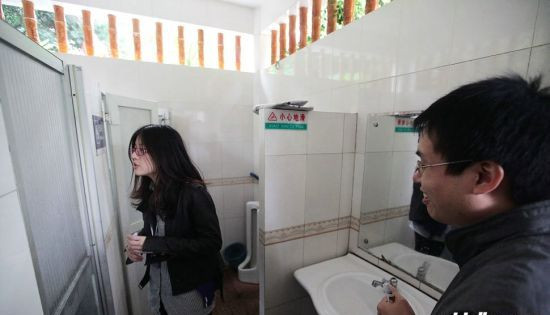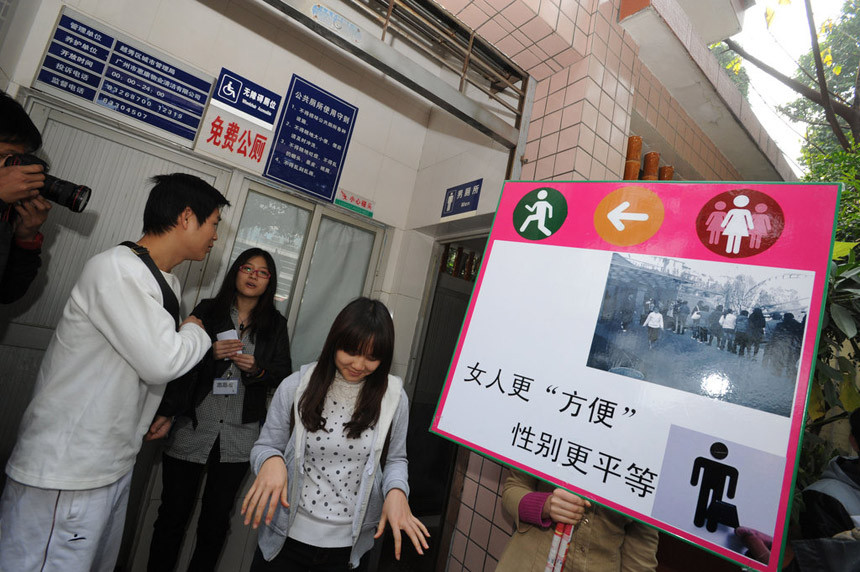Guangzhou's Groundbreaking Initiative: Unisex Public Toilets
The urban landscape of Guangzhou, Guangdong province’s capital, is poised for a significant change. The city's urban management and law enforcement authority is currently seeking public input on a novel plan: converting underutilized men's public toilets into unisex facilities. This initiative, detailed in the recently published Layout Plan of Public Toilets in Guangzhou (2024-35), aims to tackle the persistent issue of gender imbalance and inefficient resource allocation in public restroom provision.
Addressing Gender Imbalance and Inefficiency
According to the plan, the city's public restrooms often suffer from an unreasonable ratio of male to female cubicles. Many men's toilets frequently experience low usage, leading to wasted space and resources. The plan proposes that these underutilized facilities be remodeled into unisex options, thereby enhancing accessibility and improving overall efficiency. This approach addresses a long-standing problem of insufficient facilities for women in many public areas, while simultaneously optimizing the utilization of existing infrastructure.
The Rationale Behind the Transformation
The decision to encourage the transformation of male-only toilets into unisex facilities is based on several key factors. First, it acknowledges the disparity in restroom availability between genders. Second, it aims to utilize existing resources more effectively, avoiding the need for costly new constructions. Third, it demonstrates a commitment to a more inclusive and equitable public environment. The initiative underscores Guangzhou’s proactive approach to addressing gender inequalities within the public sphere, a notable step towards modern urban planning.
Expanding Access: Child-Friendly Public Toilets
Beyond the conversion of existing restrooms, the Layout Plan of Public Toilets in Guangzhou (2024-35) also emphasizes the importance of inclusivity. The plan strongly encourages the construction of child-friendly public toilets equipped with humanized service facilities. This forward-thinking approach recognizes the needs of families and children, prioritizing their comfort and accessibility within public spaces. The provision of child-friendly restrooms underscores Guangzhou's commitment to creating a family-friendly environment, recognizing the diverse needs of its citizens.
A Holistic Approach to Public Restroom Provision
The comprehensive plan represents a holistic approach to public restroom provision, addressing both immediate concerns of gender inequality and future needs for inclusivity. It demonstrates a progressive approach to urban planning, recognizing that public spaces should cater to the needs of all members of society. The proactive approach taken by Guangzhou serves as an example for other cities grappling with similar challenges in public restroom provision.
Filling the Gap: Meeting the City's Needs
The plan estimates that Guangzhou needs between 6,405 and 10,675 public toilets to fully meet the demands of its population. While the city currently meets the minimum requirements, significant disparities remain. The focus is thus shifting towards addressing uneven distribution and filling gaps in coverage. This commitment to improved accessibility underlines the city's ongoing dedication to improving the quality of life for its residents.
Future Plans and Public Engagement
By 2035, Guangzhou plans to add and expand a total of 933 public toilets, building upon its existing infrastructure. However, this ambitious plan relies heavily on public feedback. The urban management and law enforcement authority is inviting experts, scholars, and residents to provide input and suggestions on the proposed developments until December 24th. This call for public participation reflects a commitment to transparency and collaborative urban planning, ensuring that the final plan truly reflects the needs of the community.
A City's Vision: Shaping the Future of Public Sanitation
Guangzhou's initiative to transform underutilized men's restrooms into unisex facilities showcases a forward-thinking approach to urban planning. The plan’s focus on gender equity, efficient resource allocation and the inclusion of child-friendly facilities reflects a holistic understanding of the diverse needs of the community. The city's commitment to public engagement ensures a collaborative approach that will shape a more inclusive and comfortable public environment for years to come. The city's proactive planning sets a commendable precedent for other urban centers globally, emphasizing the role of urban planning in fostering inclusive and efficient public spaces.
The success of this initiative will not only improve the public sanitation infrastructure but also serve as a testament to the city's commitment to progressive social and infrastructural changes. The innovative approach adopted by Guangzhou in addressing the gender imbalance in public restroom provisions holds significant implications for urban planning strategies worldwide. This initiative highlights the importance of creative solutions in addressing gender inequalities and inefficient resource utilization. Public participation is vital to shaping future plans and ensures that public restroom provisions effectively meet the needs of Guangzhou’s vibrant and diverse population.


















